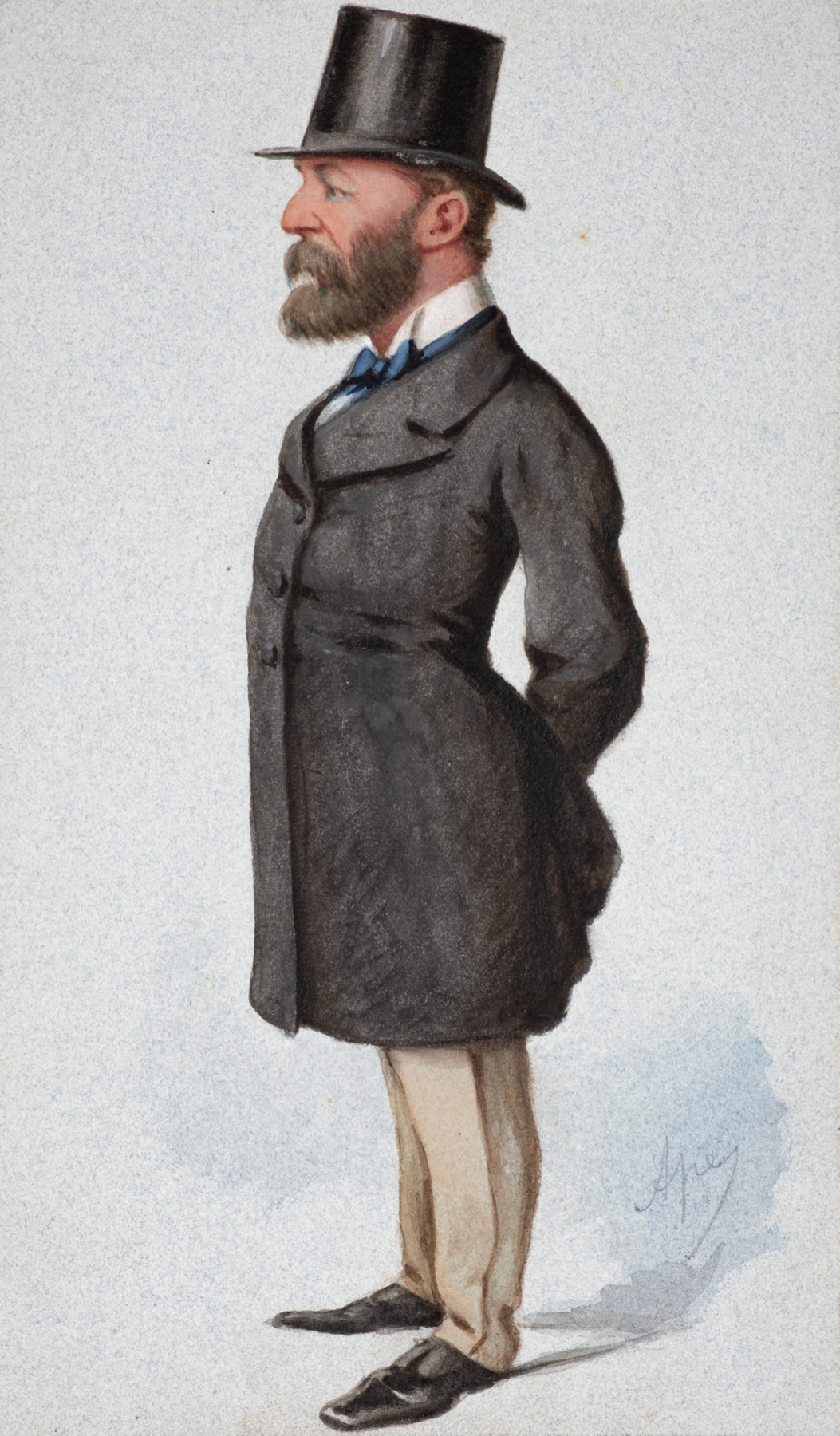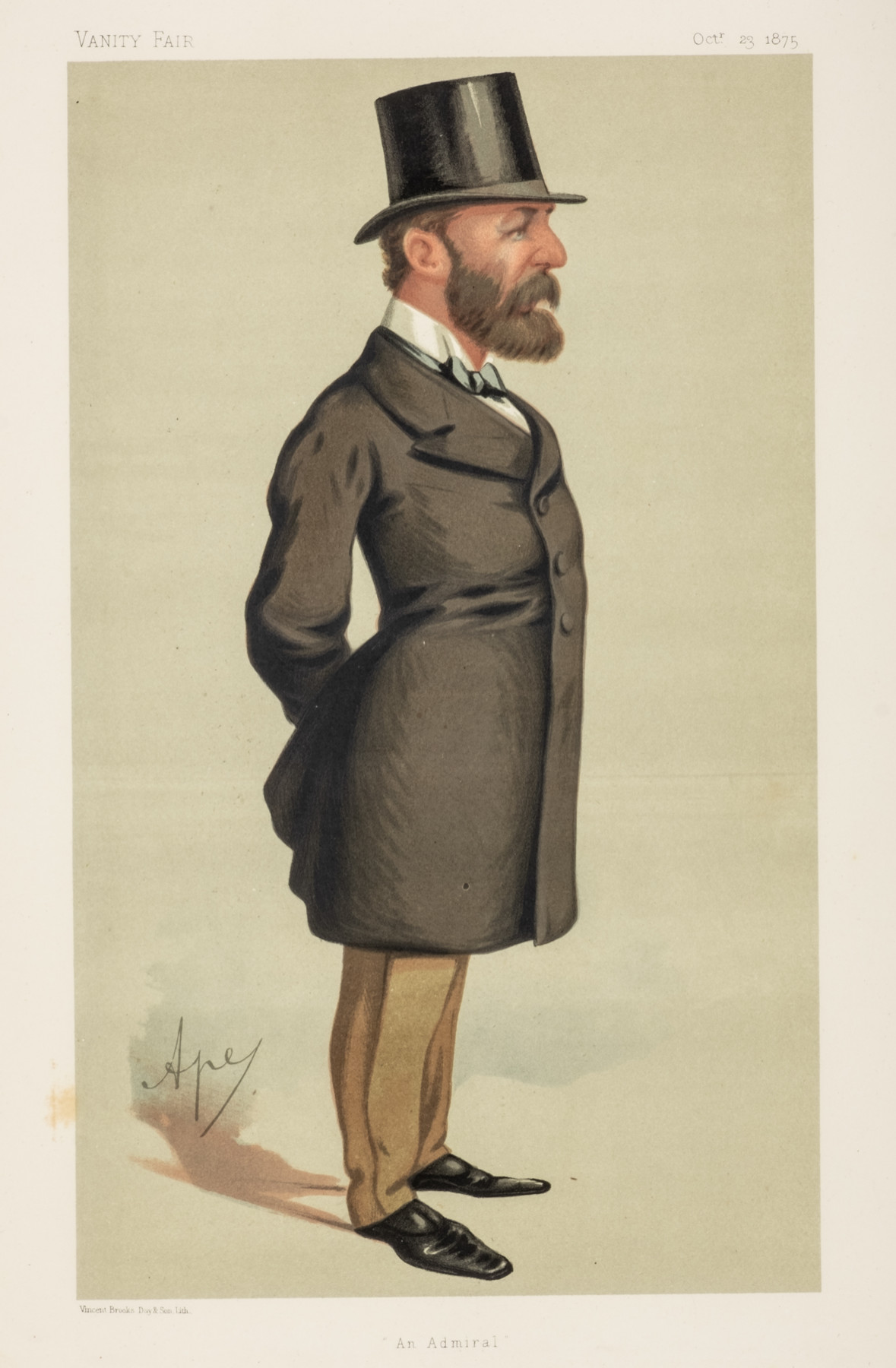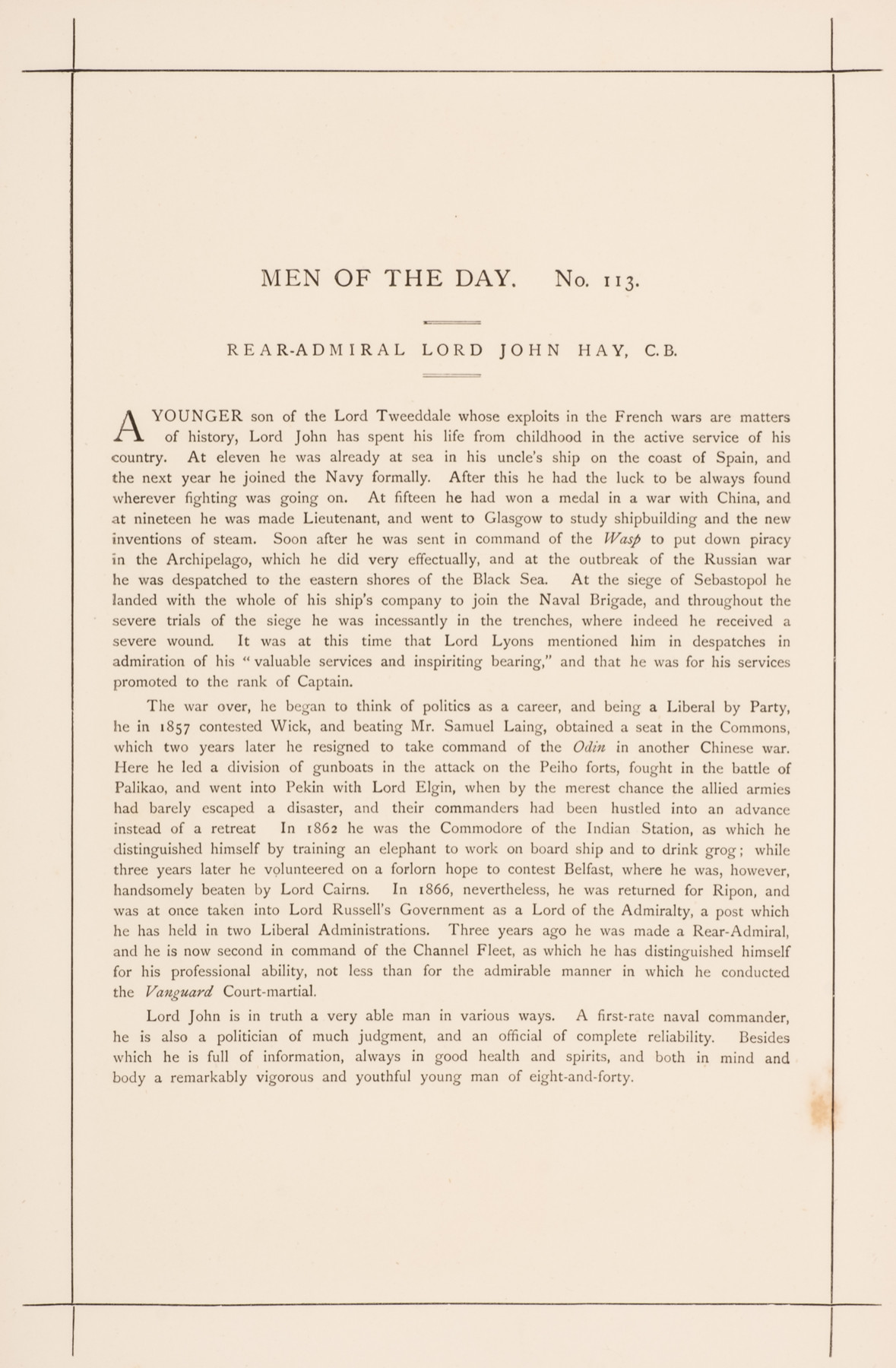


John Hay was born in Geneva, Switzerland on 23 August 1827, the fourth son of George Hay, 8th Marquess of Tweeddale and Lady Susan Montagu. He joined the Royal Navy in 1940 at the age of 12. At 14 he saw action during the First Opium War and by 19 had been promoted to Lieutenant. He was promoted to Commander on 28 August 1851 and a year later was given command of HMS Wasp in the Mediterranean. He took part in the defence of Eupatoria in November 1854 and the Siege of Sevastopol the following Spring, where he was wounded. In recognition for his services in the Crimea, he was promoted to Captain and was given command of HMS Forth.
John Hay entered politics as Whig MP for Wick from 1857 to 1859, when he resigned to take command of HMS Odin during the Second Opium War. He returned to politics as MP for Ripon in April 1866 and served as Civil Lord of the Admiralty until the fall of the Liberal government in June 1866. Between December 1868 and February 1871 he served as Junior Naval Lord. He was promoted to Rear Admiral in May 1872 and became Commander-in-Chief of the Channel Squadron in November 1877. He was promoted to vice-Admiral in December 1877 and was sent to the Mediterranean the following July to take control of Cyprus. In April 1880, he became Second Naval Lord, before being named Commander-in-Chief of the Mediterranean Fleet in February 1883. In July 1884, he was promoted to full Admiral. He was made First Naval Lord in March 1886, but had to stand down just five months later when the
Liberals fell from power. He was made Admiral of the Fleet, the highest rank of the Royal Navy, on 15 December 1888 and served until his retirement in August 1892. He died in Fulmer, Buckinghamshire on 4 May 1916.
'A younger son of the Lord Tweeddale whose exploits in the French wars are matters of history, Lord John has spent his life from childhood in the active service of his country. At eleven he was already at sea in his uncle's ship on the coast of Spain, and the next year he joined the Navy formally. After this he had the luck to be always found wherever fighting was going on. At fifteen he had won a medal in a war with China, and at nineteen he was made Lieutenant, and went to Glasgow to study shipbuilding and the new inventions of steam. Soon after he was sent in command of the Wasp to put down piracy in the Archipelago, which he did very effectually, and at the outbreak of the Russian war he was despatched to the eastern shores of the Black Sea. At the siege of Sebastopol he landed with the whole of his ship's company to join the Naval Brigade, and throughout the severe trials of the siege he was incessantly in the trenches, where indeed he received a severe wound. It was at this time that Lord Lyons mentioned him in despatches in admiration of his ‘valuable services and inspiriting bearing,’ and that he was for his services promoted to the rank of Captain.
The war over, he began to think of politics as a career, and being a Liberal by Party, he in 1857 contested Wick, and beating Mr Samuel Laing, obtained a seat in the Commons, which two years later he resigned to take command of the Odin in another Chinese war.
Here he led a division of gunboats in the attack on the Peiho forts, fought in the battle of Palikao, and went into Pekin with Lord Elgin, when by the merest chance the allied armies had barely escaped a disaster, and their commanders had been hustled into an advance instead of a retreat. In 1862 he was the Commodore of the Indian Station, as which he distinguished himself by training an elephant to work on board ship and to drink grog; while three years later he volunteered on a forlorn hope to contest Belfast, where he was, however, handsomely beaten by Lord Cairns. In 1866, nevertheless, he was returned for Ripon, and was at once taken into Lord Russell's Government as a Lord of the Admiralty, a post which he has held in two Liberal Administrations. Three years ago he was made a Rear-Admiral, and he is now second in command of the Channel Fleet, as which he has distinguished himself for his professional ability, not less than for the admirable manner in which he conducted the Vanguard Court-martial.
Lord John is in truth a very able man in various ways. A first-rate naval commander, he is also a politician of much judgment, and an official of complete reliability. Besides which he is full of information, always in good health and spirits, and both in mind and body a remarkably vigorous and youthful young man of eight-and-forty.'
Vanity Fair, 23 October 1875